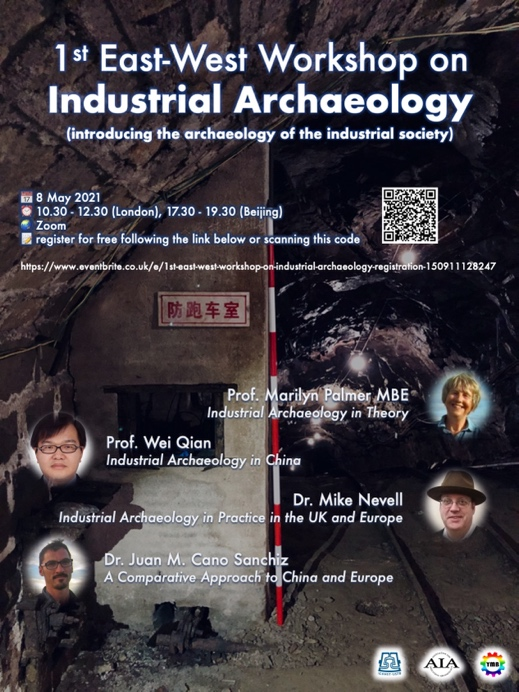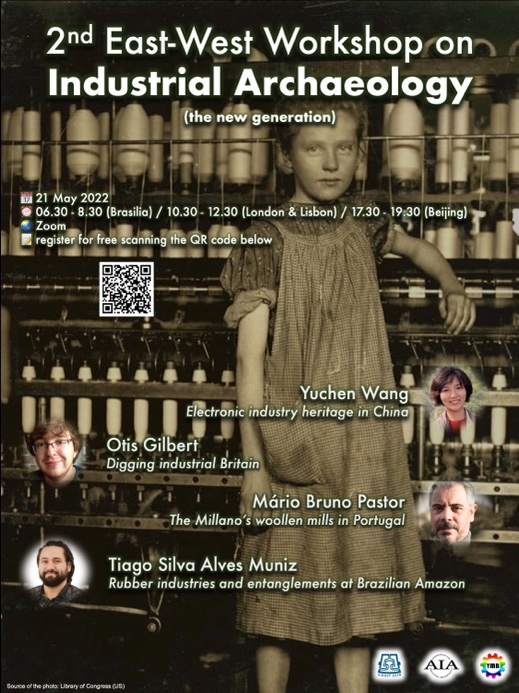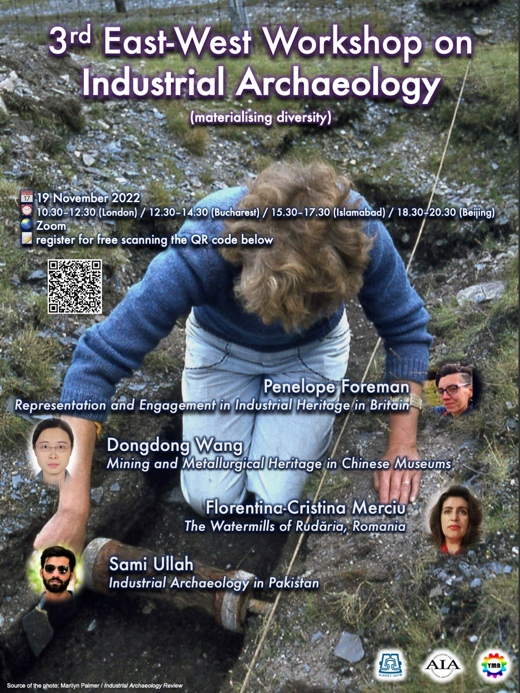Introduction to the East-West Workshops on Industrial Archaeology
时间: 2023-08-08 点击: 次
来源: 作者:
Introduction to the East-West Workshops on Industrial Archaeology
The East-West Workshop on Industrial Archaeology series is an initiative developed since 2021 by the Institute for Cultural Heritage and History of Science & Technology in cooperation with the British Association for Industrial Archaeology together with its Young Members Board. The series aims to create a virtual space for sharing experiences in the archaeological study of the industrial past, but with plenty of flexibility in terms of chronological scopes, topics and disciplinary approaches. In doing so, the E-W Workshops bring together scholars and professionals from the West, the East and beyond with two objectives. First, to promote industrial archaeology in the East, where this field of studies is underdeveloped in spite of the fast growth of industrial heritage studies, protection and reutilisation. Second, to exchange ideas and practices, so together we can build a more diverse discipline that can explain better the complexity of industrialisation in its global and multi-temporal dimensions. The workshops are held twice a year (May and November).
|
The first workshop (“Introducing the Archaeology of the Industrial Society”) counted on some of the most renowned scholars in the field to compare how industrial archaeology is understood and practised in the West and the East. The workshop created a new and singular forum, since in spite of the abundance of industrial heritage events, there are few international meetings about industrial archaeology |
|
The second workshop (“The New Generation”) focused on the work of young people in academic and professional industrial archaeology and other related fields, such as industrial heritage studies. In order to broaden perspectives, this edition also included Brazil and the Global South in the conversations. |
|
The third workshop (“Materialising Diversity”) aimed to strengthen diversity. We embraced diversity in a wide sense, considering, among others, its gender, generational, cultural, ethnic, racial and geographical dimensions. More weight was given on this occasion to the work of women in industrial archaeology, which counterbalanced the majority of male speakers in our previous meetings. |




